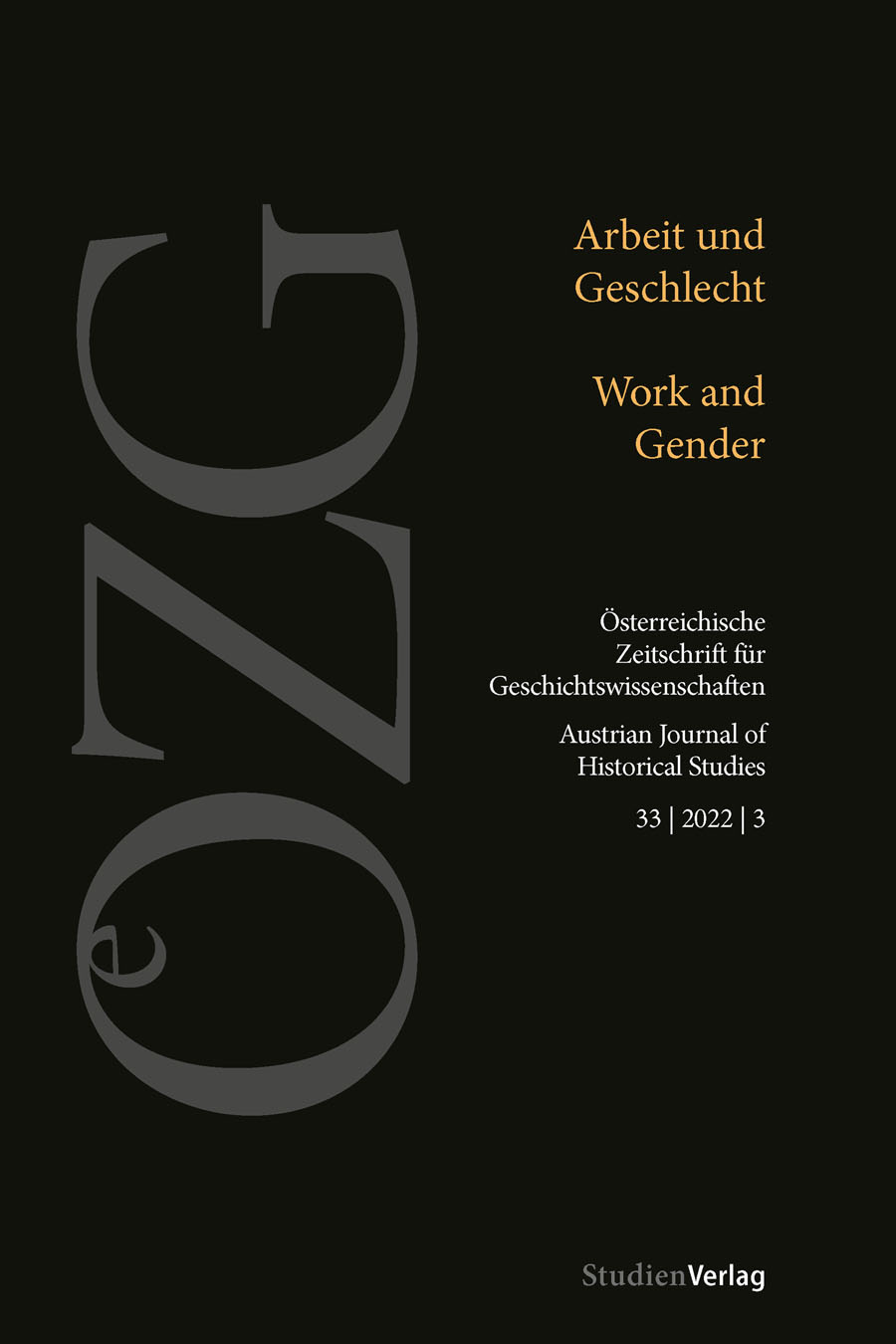Ein schmutziges Geschäft
DOI:
https://doi.org/10.25365/oezg-2022-33-3-3Schlagworte:
maids, gender, work, dirt, body, early modern period, discourse analysisAbstract
This paper explores the relationship between dirt, gender, and hierarchies in labour contexts based on the example of early modern maids. Using the instruments of historical discourse analysis, it probes how the understanding of dirt in the late Middle Ages around 1500 differs from that of around 1700. Besides gender and labour, one reference point of the search for traces in normative sources is the body as an intersection of diverse categories and an incorporator of dirt. Two opposing movements accompany the shift of dirt from an external stain to an internal essence. While normative theological or lordly sources pushed maids from the interior of households to the exterior of cities, dirt slowly inscribed itself into the maids’ bodies and helped establish a hierarchical labour regime that viewed female labour as inferior because it was performed by women.
Downloads
Veröffentlicht
Zitationsvorschlag
Ausgabe
Rubrik
Lizenz
Copyright (c) 2022 Österreichische Zeitschrift für Geschichtswissenschaften

Dieses Werk steht unter der Lizenz Creative Commons Namensnennung 4.0 International.


